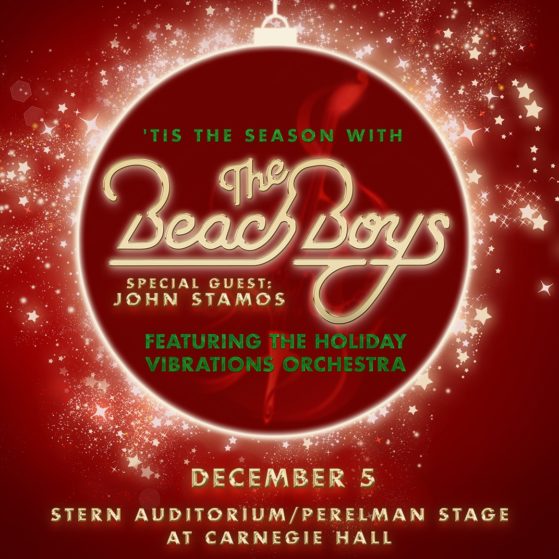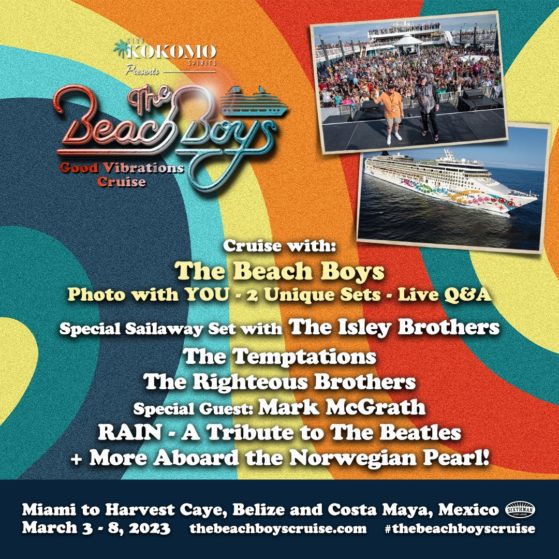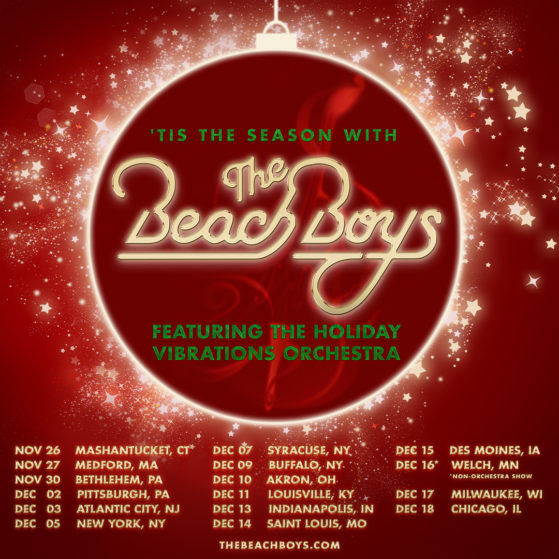SAN ANTONIO EXPRESS – NEWS – SEPTEMBER 28, 2016
By Hector Saldana
Mike Love doesn’t walk on water. But he defends his rightful place in the crashing waves of the Beach Boys’ wooly history.
The nasally lead singer, songwriter and co-founder is often cast as the villain in the story of the fabled band, which went from early ’60s surf act to challenging and inspiring the Beatles, singing about the environment and crossing paths with killer Charles Manson.
Love tells his side in his new autobiography, “Good Vibrations: My Life as a Beach Boy,” written with James S. Hirsch. (Blue Rider Press).
“For those who believe that Brian (Wilson) walks on water,” writes Love, 75, about the band’s guiding light. “I will always be the Antichrist.”
Love acknowledged he’ll never change the minds of the “die-hard haters” — especially those who never got over his acceptance speech at the Rock and Roll Hall of Fame in 1988.
“The book is not about settling scores as much as it’s about what was real and what wasn’t,” Love said about dispelling lore.
“For instance, a lot of people said that I said, in the making of the ‘Pet Sounds’ album in 1965 and ’66, ‘Don’t (expletive) with the formula.’ I never said that with respect to ‘Pet Sounds.’ How could you not like (the songs)? I also named the album and went with Brian to play the album for Capitol Records.”
The Beach Boys — fronted by Love and Bruce Johnston — perform Tuesday at the Majestic Theatre.
In the mythos of the band, Love is the one who supposedly resisted change, loathed Brian Wilson’s drug-fueled masterpieces “Pet Sounds” and the unfinished “SMiLE” (he denies it) and eventually took over the band and sued for unpaid royalties for hit songs he co-wrote with Brian but was never credited for.
The songs were huge signature hits — “Surfin’ USA,” “California Girls,” “Help Me Rhonda,” “I Get Around,” “Fun, Fun, Fun” and many others, including “Good Vibrations.”
“That was a painful process, but there was no other recourse,” Love told “CBS This Morning” about the legal actions, which went his way.
In many respects, the Wilson-Love divide and dynamic is not so different from what one learns when digging into the often strained relationships between fellow ’60s songwriters John Lennon and Paul McCartney, Mick Jagger and Keith Richards, Ray Davies and Dave Davies, Roger McGuinn and David Crosby or Pete Townshend and Roger Daltrey.
They all fought like brothers (Ray and Dave Davies are actual brothers), but needed each other — often as counterbalance. Love and Wilson are first cousins who “totally complemented each other” in song, said Love.
“It happens in just about every group,” he said. “I’ve actually seen it in print that John Lennon was the Beatles. As if Paul McCartney didn’t mean anything? It’s just ludicrous. The whole thing was a group effort.”
That goes for the Beach Boys — Brian Wilson, his brothers Dennis and Carl, Al Jardine and Love.
For example, Brian Wilson’s solo remake of “SMiLE,” doesn’t match the power or chemistry of the unfinished original to Love’s ears.
“There’s no way that it can compete with Brian at his best, Carl, Bruce, myself, Al Jardine all singing and doing our thing, basically, at the height of our abilities,” Love said about the ill-fated record Wilson hoped could top the Beatles’ “Sgt. Pepper’s Lonely Hearts Club Band.”
There’s no denying the energy Love brought to the songs with Wilson, a musical genius drawn to, and obsessed with, the softer romantic music of the Four Freshmen. Indeed, the early Beach Boys sound like the Four Freshmen harnessed to Chuck Berry under the spell of producer Phil Spector.
“Brian was introverted and a little more melancholy,” Love explained about his songwriting foil.
“There’s manic and depressive (Brian Wilson). If you’re manic, it’s ‘Surfin’ U.S.A.,’ it’s ‘I Get Around,’ it’s ‘Fun, Fun, Fun.’ If it’s depressive it’s ‘In My Room’ or ‘God Only Knows’ or ‘The Warmth of the Sun.’ They both have their value.”
Grammy-winning recording engineer and musician Marius Perron recalls trying to figure out Wilson’s complex vocal arrangements in the early ’70s with his band, Stardust, with Phil Bepko and his brother, Laurent.
“I grew up in the era when the Beach Boys were king,” Perron said. “When it came to picking out those harmony parts, it was really, really difficult. It took hours and hours and listening to it over and over again. It was a harmony that wasn’t typical.”
Love was the lead voice of those hits, often the one who came up with the hooks and concept for the lyrics. When not singing lead, he took the bass harmony. Onstage, he was the lone, prancing “Ben Hur” showman but for drummer and sex symbol Dennis Wilson shaking his hair and smiling lasciviously at screaming teenyboppers.
Love’s watched those faces for decades. “It’s really incredible,” he said.
“Entire families can show up. I’m talking about senior citizens down to children, great-grandchildren. It’s phenomenal how our music can transcend the decades.
“Three years ago, I asked this 10-year-old girl, ‘What’s you favorite Beach Boys song?’ She said, ‘409.’ Well, ‘409’ was the B-side of the hit single ‘Surfin’ Safari’ in 1962!”
Love divides the story into “the divine and the diabolical.” He’ll take the fun, the girls and the cars. Brian Wilson went a different way with hangers-on, “hipsters” and drugs, Love said.
“(LSD) altered his psyche and forever affected the group,” said Love, who turned to transcendental meditation in 1967.
For those who say the jury is still out on Love, maybe it’s time to mellow. After all, at his recent Tobin Center concert, Donovan fondly mentioned the Beach Boys’ frontman in the same breath as George Harrison and the Beatles.
And he is the one who wrote the hippie-ish lyrics to “Good Vibrations” in August 1966 while driving to the studio in his yellow Jaguar XKE on the day the band was set to sing it. The groundbreaking song came out 50 years ago this month.
“I always know what I’ve done and what I’ve contributed,” Love said. “I was there.”


